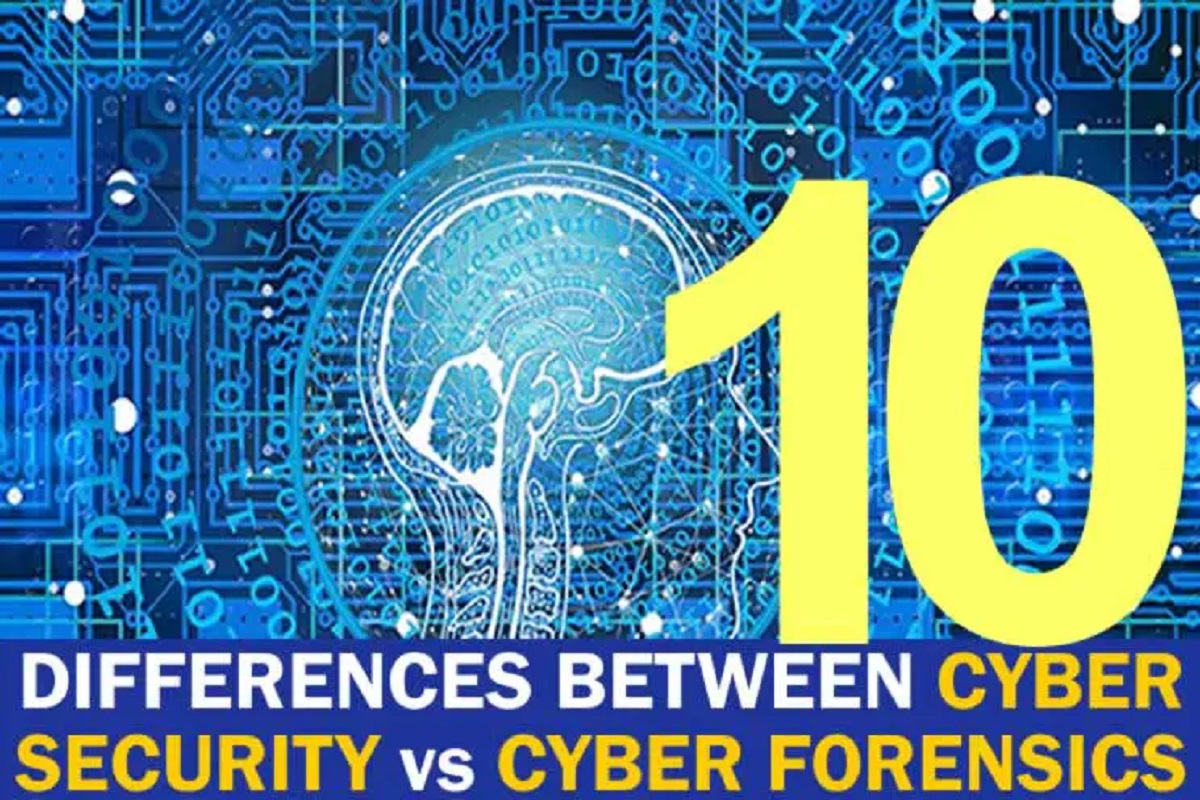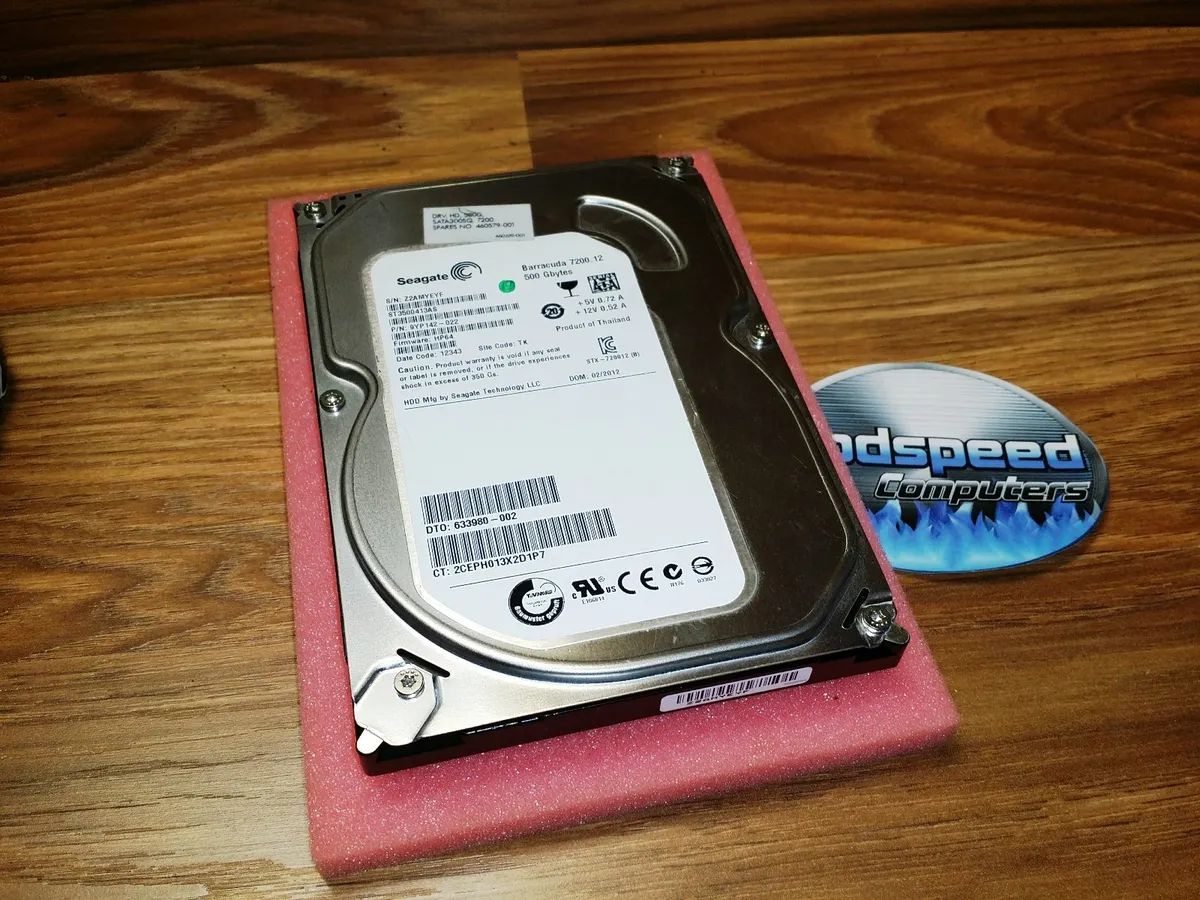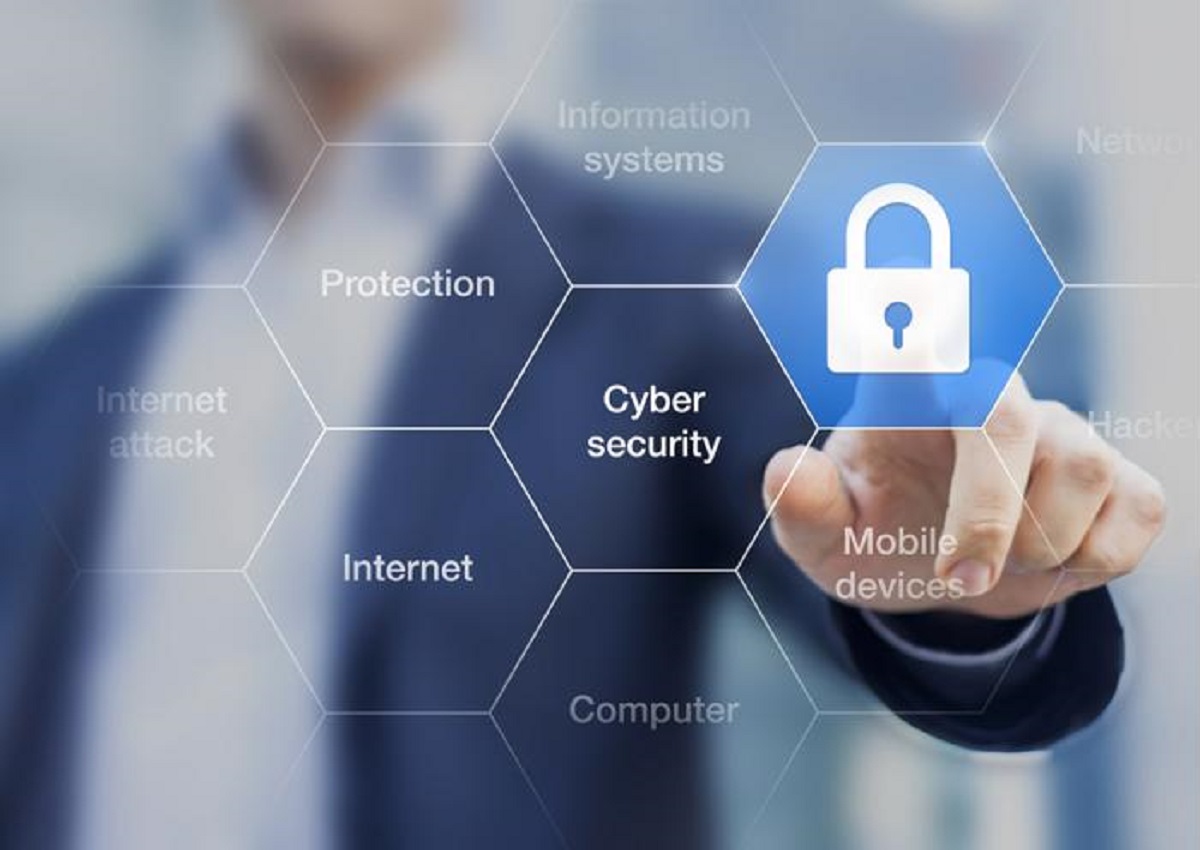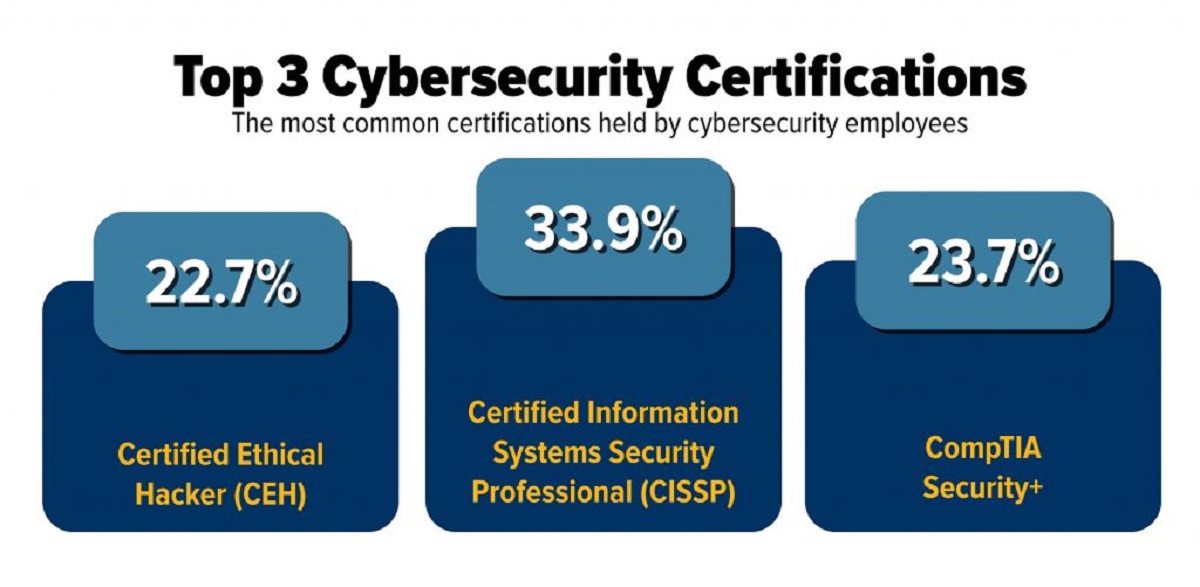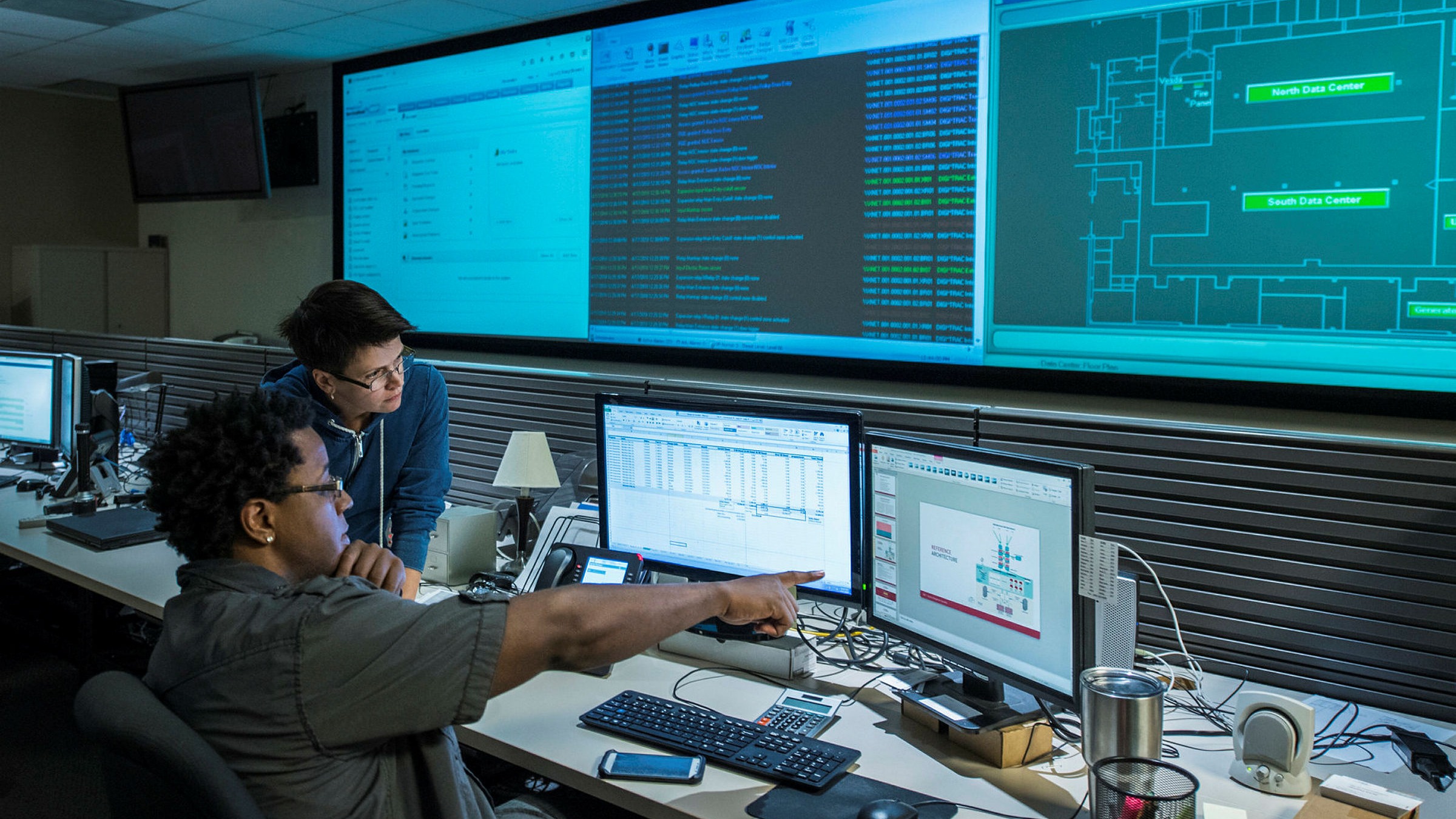Introduction
Welcome to the world of digital investigations and cybersecurity. In today’s technology-driven era, the need for professionals skilled in computer forensics and cybersecurity has never been greater. As we increasingly rely on digital platforms for communication, business transactions, and storing confidential information, the risk of cyber threats and cybercrime continues to grow.
Computer forensics and cybersecurity are two fields that play a crucial role in protecting our digital assets, detecting and investigating cybercrimes, and ensuring the integrity of digital evidence.
In this article, we will explore the key differences between computer forensics and cybersecurity, the skills required for each field, and the diverse career paths available to aspiring professionals.
So, whether you are interested in becoming a digital detective, uncovering hidden traces of cybercrime, or a cybersecurity expert defending computer networks from malicious attackers, read on to discover the exciting world of computer forensics and cybersecurity.
Overview of Computer Forensics
Computer forensics, also known as digital forensics, is a branch of forensic science that involves the preservation, identification, extraction, and analysis of electronic evidence from computers, storage devices, and digital media. This field is primarily focused on investigating various forms of cybercrimes such as hacking, data breaches, intellectual property theft, fraud, and online harassment.
Computer forensic experts utilize specialized tools and techniques to recover data from compromised systems, analyze network traffic, and reconstruct digital events to establish a timeline of activities. They work closely with law enforcement agencies, legal professionals, and corporate entities to provide crucial evidence in criminal investigations and civil litigation.
In the world of computer forensics, attention to detail is paramount. Forensic experts must have a deep understanding of file systems, data structures, and operating systems to effectively locate and extract relevant information from a vast amount of digital data. This includes recovering deleted files, retrieving metadata, and examining internet browsing history.
Computer forensics also involves the use of various forensic tools that assist in data acquisition, imaging, and analysis. These tools help forensic investigators identify suspicious files, recover deleted information, and uncover hidden artifacts that can provide valuable insights into the actions of a cybercriminal.
In addition to technical skills, computer forensics professionals must possess strong analytical and problem-solving abilities. They need to be able to follow strict protocols and maintain data integrity throughout the investigation process. Moreover, they must have the ability to present their findings in a clear and concise manner, both in written reports and courtroom testimonies.
Career opportunities in computer forensics span across law enforcement agencies, such as the FBI and local police departments, as well as private corporations, financial institutions, and consulting firms. Professionals in this field can work as forensic analysts, digital investigators, or cybersecurity consultants, providing their expertise in conducting investigations and preventing future cyber threats.
Overview of Cybersecurity
Cybersecurity is the practice of protecting computer systems, networks, and data from digital attacks, unauthorized access, and other forms of cyber threats. With the increasing reliance on technology, cybersecurity has become a paramount concern for individuals, businesses, and governments alike.
The field of cybersecurity encompasses a wide range of measures and strategies to safeguard sensitive information, prevent data breaches, and mitigate the risks associated with cybercrime. This includes implementing robust security protocols, securing network infrastructure, and educating users about best practices for safe online behavior.
One of the core aspects of cybersecurity is the identification and management of vulnerabilities in computer systems. Cybersecurity professionals conduct risk assessments and penetration testing to identify weaknesses and potential entry points that could be exploited by hackers. They then implement security controls and countermeasures to protect against these threats.
There are various specialized areas within cybersecurity, including network security, information security, application security, and cloud security. Network security focuses on securing communication channels and protecting network infrastructure from unauthorized access. Information security involves the protection of data at rest and in transit, ensuring confidentiality, integrity, and availability of data. Application security deals with the protection of software applications from security vulnerabilities and exploits. Cloud security focuses on securing cloud-based platforms and services.
As the field of cybersecurity evolves, new challenges and emerging threats continue to emerge. Cybersecurity professionals need to stay updated with the latest trends in technology, hacking techniques, and security protocols. They must constantly adapt to new threats and develop innovative approaches to defend against them.
Career opportunities in cybersecurity are abundant, with a growing demand for skilled professionals across industries. Professionals in this field can work as security analysts, cybersecurity consultants, information security officers, ethical hackers, or security architects. They can be employed by government agencies, financial institutions, healthcare organizations, technology companies, or other organizations that require robust cybersecurity measures.
In summary, cybersecurity professionals play a critical role in safeguarding digital assets and protecting against the ever-evolving threat landscape. With the increasing reliance on technology and the growing sophistication of cybercriminals, the importance of cybersecurity in today’s digital world cannot be overstated.
Comparison of Computer Forensics and Cybersecurity
While computer forensics and cybersecurity are both focused on digital protection and investigation, they differ in their primary objectives and areas of expertise.
Computer forensics primarily deals with the investigation and analysis of digital evidence to uncover information related to cybercrimes. Forensic experts are trained to gather and preserve electronic evidence from computers and other digital devices, ensuring that it is admissible in a court of law. They use specialized tools and techniques to retrieve data, reconstruct events, and present their findings in a legal context.
Cybersecurity, on the other hand, is focused on preventing and mitigating cyber threats before they occur. Cybersecurity professionals implement protective measures to safeguard networks, systems, and data from unauthorized access, data breaches, and other malicious activities. They employ various methods such as firewalls, encryption, access controls, and security protocols to minimize vulnerabilities and defend against cyberattacks.
Computer forensics and cybersecurity also differ in terms of their approach to investigations. Computer forensics typically involves a retrospective analysis of digital evidence, often in response to an incident or suspected crime. Forensic professionals follow strict protocols and utilize specialized tools to ensure the integrity of evidence as they reconstruct past events and patterns of digital activity.
Cybersecurity, on the other hand, takes a proactive approach by implementing preventive measures to detect and prevent cyber threats in real-time. Cybersecurity professionals monitor networks, analyze system logs, and utilize intrusion detection systems to identify and respond to potential threats before they can cause significant damage.
While computer forensics and cybersecurity have distinct objectives, they are closely related and often work together in the incident response process. Computer forensics can provide valuable insights and evidence during a cybersecurity investigation, while cybersecurity measures help prevent and detect incidents that may require forensic analysis.
In terms of skill requirements, both computer forensics and cybersecurity professionals need a solid understanding of computer systems, networks, and forensic tools. However, computer forensics experts need additional expertise in data recovery, evidence preservation, and legal procedures to ensure that their findings are admissible in court.
Career paths in computer forensics and cybersecurity offer exciting opportunities for individuals interested in the digital realm. Both fields are experiencing high demand, with ample job prospects and competitive salaries. Whether you are inclined towards delving into the intricacies of digital evidence or focused on preventing cyber threats, pursuing a career in either computer forensics or cybersecurity can lead to a fulfilling and rewarding professional journey.
Skills and Training Required
Both computer forensics and cybersecurity require a unique set of skills and specialized training to excel in these fields. While there are some overlapping skills, there are also distinct areas of expertise that professionals in each field need to develop.
In computer forensics, a deep understanding of computer systems, operating systems, and file systems is essential. Forensics experts must be proficient in using forensic tools and software to recover and analyze digital evidence. They should have knowledge of data recovery techniques and be able to uncover hidden information from various devices and media. Strong analytical skills and attention to detail are crucial for examining large amounts of data and identifying patterns or anomalies that could potentially uncover cybercrimes.
Legal knowledge is also important for computer forensics professionals, as they often work closely with law enforcement agencies and need to comply with the rules of evidence and proper handling of data. They must possess excellent written and verbal communication skills to effectively document their findings and present them in a court of law.
In cybersecurity, professionals need a solid foundation in network security protocols, encryption techniques, and risk assessment methodologies. They must be adept at identifying vulnerabilities and implementing appropriate measures to protect sensitive information. Understanding of various security technologies, such as firewalls, intrusion detection systems, and security information and event management (SIEM) tools, is crucial in ensuring the security of computer networks.
Cybersecurity professionals should also stay updated with the latest trends in hacking techniques and emerging threats. They need to continuously expand their knowledge and expertise to anticipate and counter new cyberattacks effectively. Continuous learning and a curiosity-driven mindset are vital in this field, as cyber threats evolve rapidly.
Both computer forensics and cybersecurity professionals need to have strong problem-solving and critical thinking skills. They must be able to analyze complex situations, make informed decisions, and respond quickly to security incidents or breaches.
Formal education and certifications play a significant role in both fields. Many professionals in computer forensics and cybersecurity hold degrees in computer science, computer engineering, cybersecurity, or a related field. Certifications such as Certified Forensic Computer Examiner (CFCE), Certified Information Systems Security Professional (CISSP), and Certified Ethical Hacker (CEH) are highly respected and can enhance job prospects.
Professional experience through internships, entry-level positions, or participation in capture-the-flag competitions and cybersecurity challenges can provide practical skills and hands-on experience in real-world scenarios.
Continuous professional development is essential in both computer forensics and cybersecurity. Professionals should stay updated on the latest techniques, tools, and regulatory changes to remain effective in their roles and maintain the highest standards of security and investigation practices. Participation in conferences, workshops, and industry forums can provide valuable networking opportunities and knowledge sharing.
Overall, a combination of technical skills, analytical abilities, legal knowledge, and a commitment to ongoing learning is essential for success in both computer forensics and cybersecurity.
Job Opportunities and Career Paths
Both computer forensics and cybersecurity offer promising career opportunities with a high demand for skilled professionals in the industry. As the world becomes increasingly reliant on technology, the need for individuals who can protect digital assets and investigate cybercrimes continues to grow.
In the field of computer forensics, professionals can pursue diverse career paths. They may find employment in law enforcement agencies, such as the FBI, state and local police departments, and government agencies specializing in digital investigations. These roles involve working on criminal cases, assisting in the prosecution of cybercriminals, and providing expert testimony in court.
Private corporations and consulting firms also hire computer forensics experts to investigate internal data breaches, intellectual property theft, and employee misconduct. They may work closely with legal departments and provide guidance on data privacy and compliance issues.
Career advancement in computer forensics can lead to positions such as forensic team lead, forensic consultant, or even managing a digital forensics division within an organization. Some individuals may choose to specialize in a specific area, such as mobile device forensics, network forensics, or incident response.
In the field of cybersecurity, there are numerous job opportunities available across various industries. Technology companies, financial institutions, healthcare organizations, and government agencies all require cybersecurity professionals to protect their systems and data from cyber threats.
Professionals can start their careers as security analysts, responsible for monitoring networks and systems for potential threats and responding to security incidents. With experience and further training, they can progress to roles such as security engineer, security consultant, or security architect, where they design and implement robust security measures.
Ethical hacking, also known as penetration testing, is another career path within cybersecurity. Ethical hackers are tasked with identifying vulnerabilities in systems and networks by attempting to hack into them legally. Their findings help organizations strengthen their defenses against malicious actors.
Cybersecurity professionals may also specialize in specific areas such as cloud security, network security, or information security management. These specializations often require in-depth knowledge and expertise in specific tools and technologies.
As professionals gain experience and demonstrate their skills, there are opportunities for career advancement into managerial and leadership roles, such as Chief Information Security Officer (CISO) or Security Operations Center (SOC) manager.
Moreover, individuals interested in entrepreneurship can establish their own cybersecurity consulting firms or start-ups, providing services such as vulnerability assessments, risk management, and incident response to clients.
In both computer forensics and cybersecurity, continuous learning and professional development are key to advancing one’s career. Staying up-to-date with the latest industry trends, acquiring additional certifications, and attending relevant training programs can open doors to higher-level positions and increased earning potential.
Overall, the job opportunities and career paths in computer forensics and cybersecurity are vast and ever-growing. A passion for technology, a commitment to ongoing learning, and a dedication to upholding the highest standards of digital security and investigation are essential for success in these fields.
Conclusion
In conclusion, computer forensics and cybersecurity are two interconnected fields that play critical roles in today’s digital landscape. While computer forensics focuses on the investigation and analysis of digital evidence to uncover cybercrimes, cybersecurity is concerned with proactively preventing and mitigating cyber threats.
Professionals in computer forensics are skilled in gathering and analyzing electronic evidence, utilizing specialized tools and techniques. They work closely with law enforcement agencies and legal professionals to provide crucial evidence in criminal investigations and civil litigation.
On the other hand, cybersecurity professionals are experts in safeguarding computer systems, networks, and data from cyber threats. They deploy security measures, protocols, and technologies to prevent unauthorized access, data breaches, and other malicious activities.
Both fields require a unique set of skills, including technical expertise, analytical thinking, attention to detail, and continuous learning. Professionals in computer forensics need legal knowledge and the ability to present their findings in a court of law, while cybersecurity experts need a solid understanding of network security protocols and emerging threats.
Career opportunities in computer forensics and cybersecurity are abundant. Professionals can find employment in law enforcement agencies, government organizations, consulting firms, and various industries that require robust digital protection and investigation capabilities.
Continuous professional development and a commitment to staying updated with the latest advancements in technology and cyber threats are essential for success in both fields. Obtaining relevant certifications and participating in industry events and forums can enhance job prospects and open doors for career advancement.
Ultimately, both computer forensics and cybersecurity contribute to creating a safer digital environment. The roles of these professionals are vital in fighting cybercrimes, protecting digital assets, and ensuring the integrity of our digital world.







